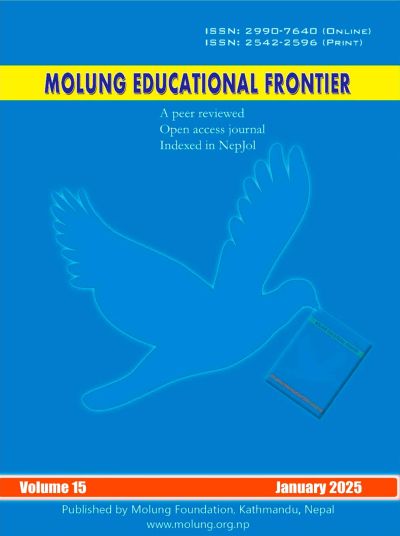Exploring the Linking between Education Investment and Economic Growth: Evidence from Study of Nepal
DOI:
https://doi.org/10.3126/mef.v15i01.74096Keywords:
government expenditure, educational investment, gross domestic product, Nepalese economy, ADF test, descriptive statisticsAbstract
This study aims to assess the influence of government expenditure on education and gross fixed capital formation on Nepal's GDP and to analyze the significance of human capital development in driving sustainable economic growth in Nepal by examining the relationship between educational investment and economic performance during the period 1975–2021. The method of this study is using econometric model, the study employs the Ordinary Least Squares (OLS) technique to estimate a multiple regression model, evaluating the relationships among dependent and independent variables. The findings indicate a positive correlation between government spending on education and GDP; however, the regression analysis reveals that educational expenditure does not significantly impact Nepal's real GDP. A trend analysis highlights a decline in capital expenditure on education over the years, accompanied by a steady increase in recurrent spending. The study's implication underscores the critical role of government in delivering essential education services and recommends sustained and increased investment in education to enhance human capital. These findings have significant policy implications, advocating for strategic reforms in Nepal's educational financing to foster economic growth and sustainable development. This research contributes to the broader understanding of the role of education in economic progress, offering insights specifically relevant to Nepal's socio-economic context.
Downloads
Downloads
Published
How to Cite
Issue
Section
License
© Molung Foundation




